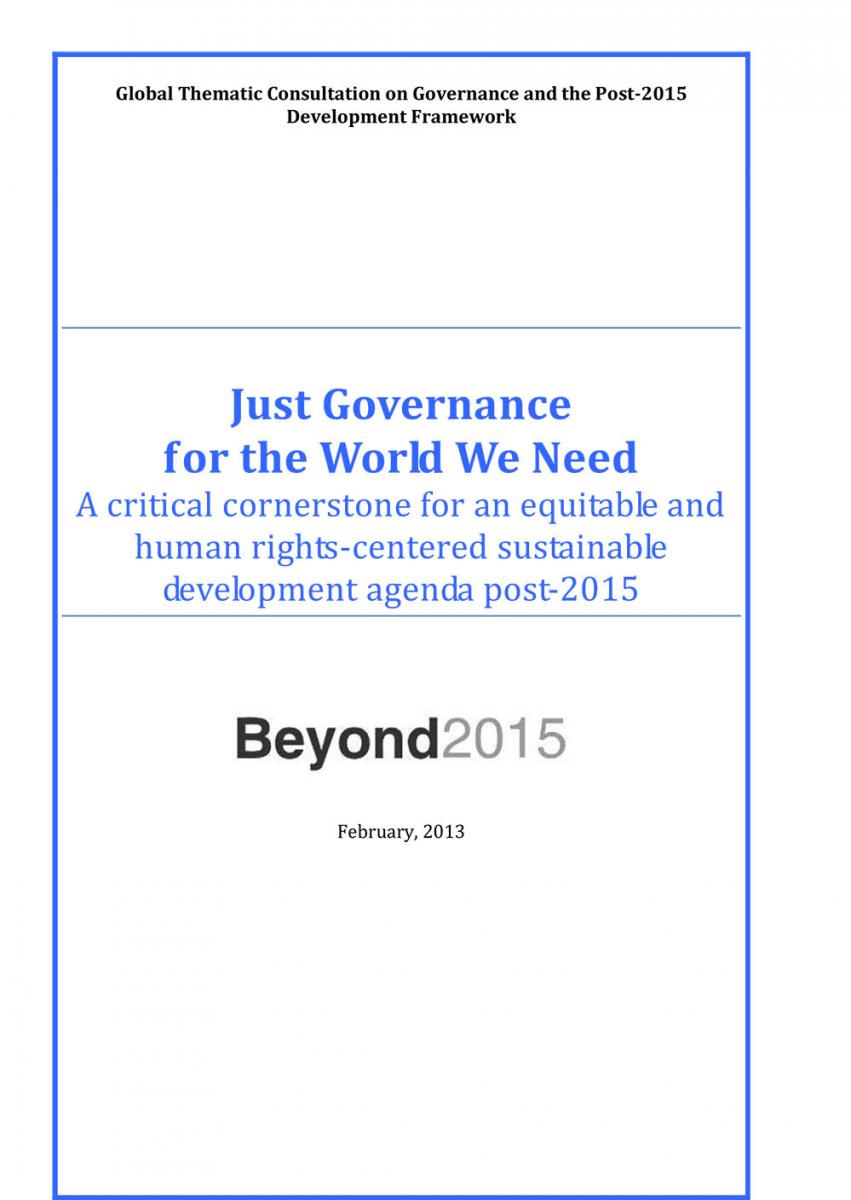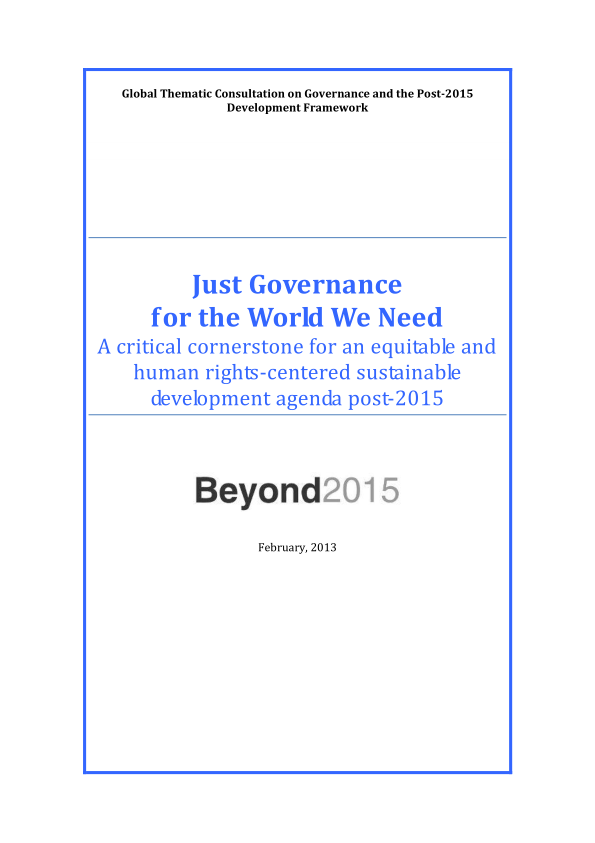 With the deadline for the current Millennium Development Goals (MDGs) just two years away, it has become clear that the many of the promises made at the turn of the century will go unfulfilled. While the reasons for this limited progress cannot be reduced to a single factor, there is wide consensus that weak and unaccountable governance both within and between countries has lead to a dynamic in which the benefits of development have been neither sustainable nor equally shared.
With the deadline for the current Millennium Development Goals (MDGs) just two years away, it has become clear that the many of the promises made at the turn of the century will go unfulfilled. While the reasons for this limited progress cannot be reduced to a single factor, there is wide consensus that weak and unaccountable governance both within and between countries has lead to a dynamic in which the benefits of development have been neither sustainable nor equally shared.
A new position paper from the Beyond-2015 campaign, 'Just Governance for the World We Need: A critical cornerstone for an equitable and human rights-centered sustainable development agenda post-2015',explains that just and effective governance must become a central pillar of any future global development framework.
The need for more effective forms of global governance is all the more evident in the wake of the global financial, economic, food, fuel and climate crises. It has become clear in recent years that, even in formal democracies, corrupt and unfair governance can entrench the privileges of the elite, widening social and economic disparities, and undermining human rights-centred development processes. The past decade has seen a worldwide clamour for more accountability in political, economic and social decision-making at the national and international levels.
To be truly just, the paper argues, governance systems at all levels from the local to the global must meet six main characteristics. They must be: 1) human rights-centred, 2) participatory, 3) transparent, 4) equitable, 5) guaranteeing of access to justice and the rule of law, and 6) accountable. As the UN-led global consultation on governance post-2015 culminates this week in a global forum in Johannesburg, South Africa, the Beyond-2015 campaign, which brings together over 500 organizations from all corners of the globe, spells out the principles it believes are the essential stepping stones towards more equitable and human rights-centred systems of governance, and their implications for the post-2015 sustainable development framework.
In an increasingly interdependent and multi-polar world, which has witnessed a fragmentation and abdication of responsibilities at the global level, it is more important than ever that the voices of ordinary people be heard in the design, implementation and monitoring of sustainable development policies. Just governance in this sense is not a matter of external imposition, but an indispensable precondition for ensuring that the equal rights of all people and the sustainability of the planet effectively guide all policy-making.
The Center for Economic and Social Rights is co-coordinator of Beyond 2015's position paper on governance post-2015, along with the Global Call to Action Against Poverty, and serves on the Executive Committee of Beyond 2015.
